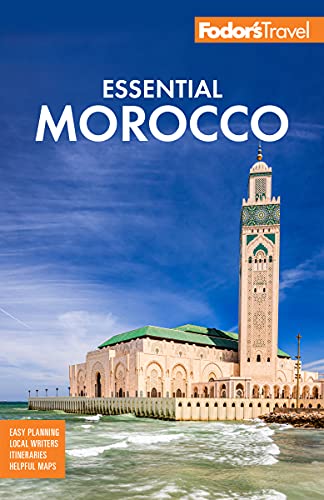Moroccan Writers
Morocco has a rich literary tradition. Marrakesh's Koutoubia Mosque, the city's largest, derives its name from the Arabic word for librarian. Dating to the 12th century, it served not only as an important place of worship but also as a library and the world’s first marketplace for manuscripts.
Moroccan scribes have been writing about the world since the 14th century, when the Rihla (The Journey) recounted the story of the Moroccan Islamic scholar Ibn Battuta, who traveled an astounding 75,000 miles over 30 years. By the 20th century, when dramatic political changes inspired a new generation of Moroccan writers, much of the writing turned inward to address domestic issues. Contemporary Moroccan authors touch upon a remarkably diverse range of topics, including such controversial subjects impacting Moroccan society as gender roles, discrimination, poverty, and class division, by writers who create their works in Arabic, French, Berber, and English.
Expats in Morocco
Since the 1950s, Tangier and the surrounding towns and villages have acted as a refuge for the world’s most influential literary figures. Tennessee Williams, Allen Ginsberg, and Jack Kerouac called Tangier home, while George Orwell once visited under an alias as he reported on the political leanings of the various newspapers on sale at the time.
Five of the brightest lights in Moroccan letters can be discovered in translation (though sometimes only in import editions).
Driss Chraïbi
Novelist, radio producer, and commentator Driss Chraïbi writes novels that address themes of colonialism, the clash between cultures, and the treatment of women within Muslim society. Many of his works are semiautobiographical. His works include Le Passé Simple (The Simple Past), Les Boucs (The Butts), La Civilisation, Ma Mère (Mother Comes of Age), and his autobiography Vu, Lu, Entendu (Seen, Read, Heard).
Abdelkebir Khatibi
A playwright, novelist, literary critic, and scholar, Abdelkebir Khatibi often incorporated political and social issues into his novels during his most productive periods, the 1960s and ’70s. His novels include La Mémoire Tatouée (Tattooed Memory), Amour Bilingue (Bilingual Love) and La Blessure du Nom Propre (The Wound Under Its Own Name).
Tahar Ben Jelloun
Born in 1944 to a Fez shopkeeper, Tahar Ben Jelloun is considered one of North Africa’s most successful authors. Both a poet and novelist, he has received international acclaim for his works, which provide an insight into Moroccan culture on a variety of controversial themes such as gender identity, sexuality, and male domination within the society. Novels include The Sand Child, Harrouda, Racism Expliqué à Ma Fille (Racism Explained to My Daughter), and La Nuit Sacrée (The Sacred Night).
Siham Benchekroun
A doctor, journalist, and writer, Siham Benchekroun is known as much in the West for her pioneering work in medical journalism as for her novels and poetry, which often focus on the lives of Moroccan women. They include the novels Oser Vivre (Dare to Live) and Chama, as well as À toi (For You), a compilation of poems. Though available in French, none of her books have been translated into English.
Rita El Khayat
Anthropologist, psychologist, and feminist scholar, Rita El Khayat has written more than 30 books focusing predominately on psychiatry and anthropology. She was a moving force in the late 1990s in Morocco’s movement to modernize the country’s family law code. In 2008, she was nominated for the Nobel peace prize. Open Correspondence, published in 2010, is a compilation of enlightening correspondence between El Khayat and Abdelkebir Khatibi.




